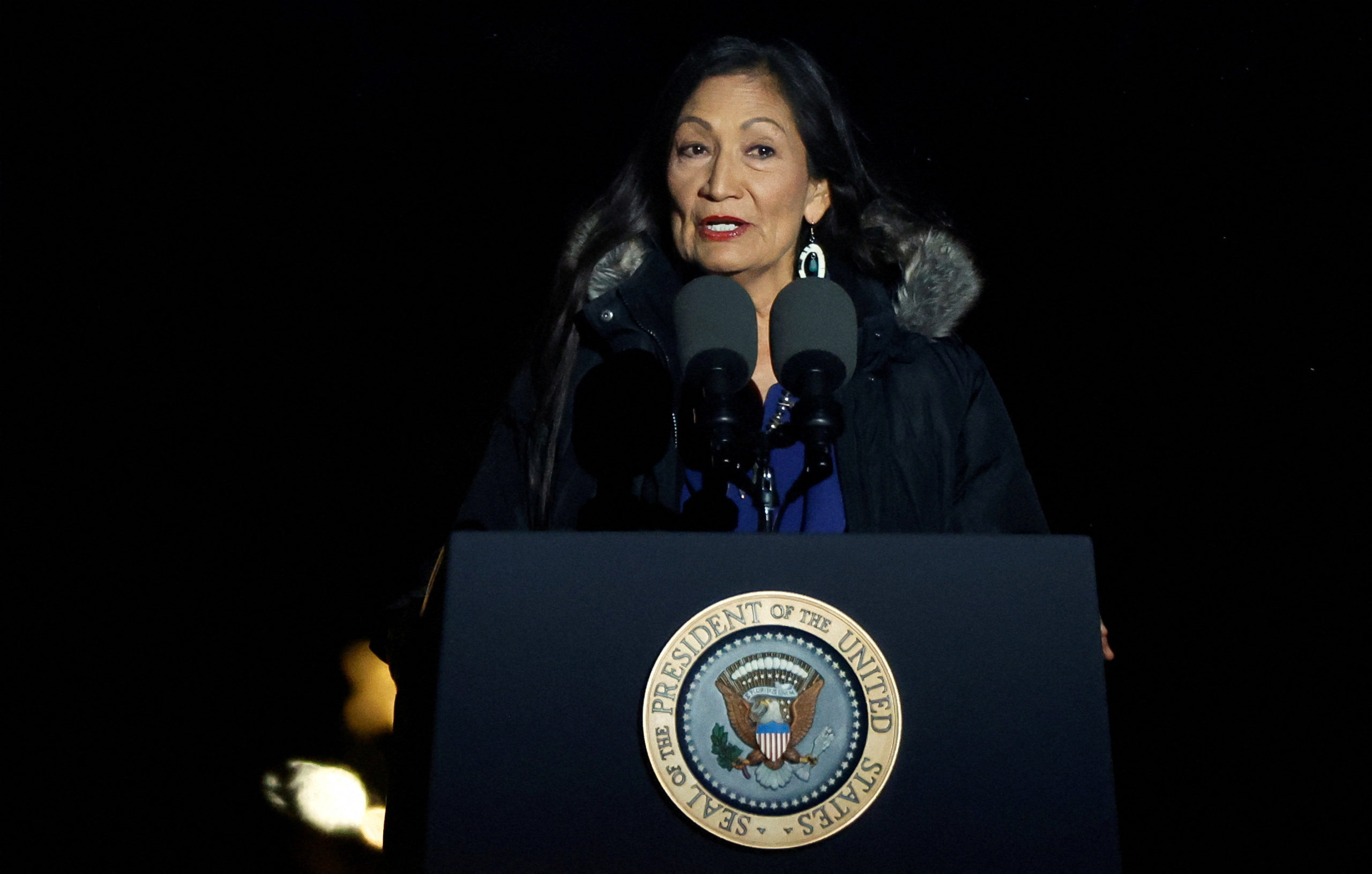U.S. considers new land swap deal in Alaska wildlife refuge
Environmentalists have said a road would destroy valuable habitat for birds along Kinzarof Lagoon, and would set a dangerous precedent for other wildlife refuges.

(Reuters) – The U.S. Interior Department will review the environmental impacts of a possible land swap deal that would allow a new road to cut through an Alaska wildlife refuge, it said on Wednesday.
The move comes two months after Interior Secretary Deb Haaland withdrew a Trump-era land exchange deal between her agency and the Alaska Native American-led King Cove Corporation, but said she would be open to considering other proposals to replace it.
In a notice published in the Federal Register, Interior said it would consider an exchange that would allow for a road corridor for noncommercial use through the Izembek National Wildlife Refuge and the Izembek Wilderness Area.
Supporters of the swap say the road would give residents of King Cove, a small village of 1,000 people, access to an airstrip in nearby Cold Bay in case of medical or other emergencies.
Environmentalists have said a road would destroy valuable habitat for birds along Kinzarof Lagoon, and would set a dangerous precedent for other wildlife refuges.
The deal set by former President Donald Trump’s administration was controversial because it left open the door to commercial use of the road.
Interior’s Fish and Wildlife Service will accept public comments on the analysis for 30 days.
(Reporting by Nichola Groom; Editing by Aurora Ellis)